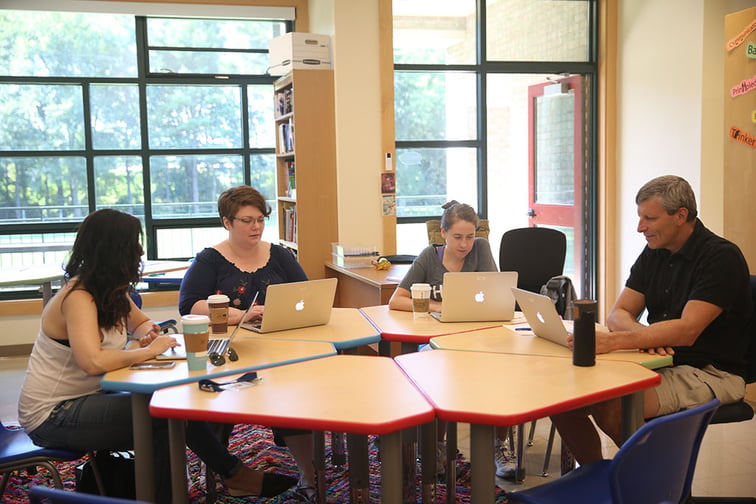Starting at a new school can be just as overwhelming for new teachers as it is for new students. While it's exciting for new staff to envision the year, it can also be overwhelming. The new things they need to learn range from information systems to HR to curriculum. Developing a solid teacher induction program can ease the transition for new staff, giving them the time, support and relationships they need to thrive.
Induction is an umbrella term for the supports put in place to assist teachers in adapting to a new workplace culture. A stand-alone program before the school year should be a priority to support most immediate needs, followed by continued work throughout the first year. Induction goes beyond understanding students, classes and curriculum. Information about the systems and processes that guide the workplace, as well as school norms, are integral for teachers to settle in and feel confident; however, it's important to keep in mind the pace at which this is done.
Introduce new ideas over time, and when it's most appropriate
A well-planned induction program takes into account the school environment and the highest priority needs of new teachers. It's impossible to learn all the particulars at once, so spacing out conversations around systems, collaborative planning, curriculum, teaching and learning, and assessment over the year is prudent. With more time to absorb and process information, new teachers can begin to understand how the pieces of the whole fit together. When conversations are planned around a coinciding event or issue, understanding deepens.
While understanding of a curriculum's core beliefs and grounding is certainly important, teachers often feel more immediate needs. This may mean skipping philosophy for a moment and getting right into teaching and learning or assessment. Organizing induction sessions that are timely, and providing a chance for teachers to apply what they are learning, supports them in making connections between all the moving parts. Once teachers develop some confidence in their new classrooms and with the school culture, they will have more mental space and energy to discuss theory. Building flexibility into the plan is important; asking teachers what issues are weighing on them, and planning sessions around those ideas as they arise is supportive of this new collegiality.

Provide a safe environment to ask questions
Relationships are crucial to a supportive induction program. There is no way to know what will be the most pressing issues for teachers without getting to know them and their experiences. Getting to know new teachers outside of induction meetings is important; check-ins are a great way to take the temperature and quick classroom observations provide opportunities to celebrate. By the time each induction meeting rolls around, teachers should feel safe to share what they are going through and what's coming up in their classroom. A trust between the person running the meetings and new staff members is key.
By supporting new teachers, you support students and their learning.
Build a network of others experiencing the same things
Providing opportunities for new staff members to learn from returning colleagues is a wonderful support system; building in opportunities for the the new staff to connect as a cohort is just as important. As they often have similar experiences, questions and worries, new teachers can provide each other a sounding board. Providing time for new staff to get to know one another gives them an opportunity to form relationships and come into the year knowing someone on equal footing. These relationships offer a built-in support system for new teachers throughout the year.
Starting over at a new school is exciting, yet daunting. When planning an induction program, careful consideration of the way information is distilled is key, as is the creation of a safe environment built on trust and relationships. By supporting new teachers, you support students and their learning.


